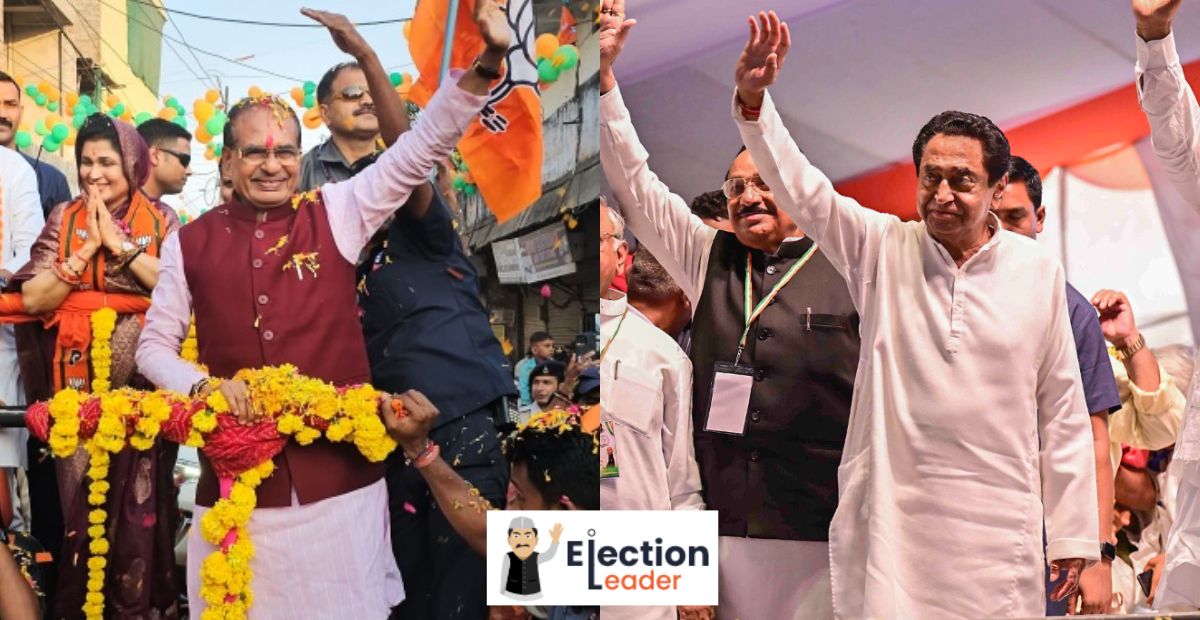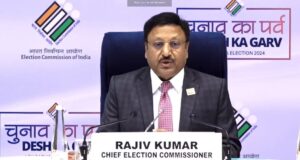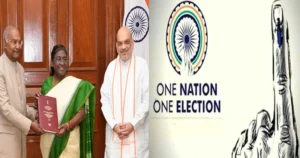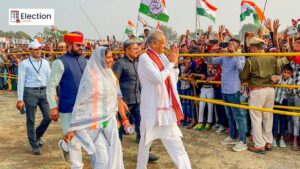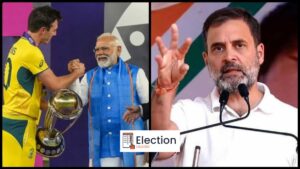Table of Contents
ToggleIntroduction
BJP Announces Two New Candidates for Madhya Pradesh Assembly

Two more candidates who will represent the Bharatiya Janata Party (BJP) in the Madhya Pradesh Assembly elections have been named by the party. A key component of the electoral process is the selection of candidates, which represents the party’s strategy vision, and comprehension of the needs and desires of the voting public. This piece aims to examine the recently declared BJP contenders their personal histories, and the implications of these decisions within the broader political framework of Madhya Pradesh Assembly
Rekha Sharma
The BJP has nominated Rekha Sharma as one of their candidates for the forthcoming Madhya Pradesh Assembly elections. Her candidacy is an intriguing decision that might have an impact on the election contest.
Background

Rekha Sharma has a history steeped in community action. She has worked closely with local communities on matters including healthcare, education, and infrastructure development, and she has been actively involved in a number of community development initiatives in her area. Her background in these fields may come in handy when addressing her voters’ worries.
Gender Representation
Rekha Sharma was chosen in keeping with the BJP’s emphasis on the representation of women in politics. Rekha Sharma’s nomination is proof of the party’s proactive efforts to support women in leadership roles.
Impact on Voter Demographics
Rekha Sharma’s candidature could resonate with the women voters in her constituency, potentially giving the BJP an edge in connecting with a significant demographic.
Arvind Singh

Arvind Singh is the other candidate announced by the BJP, and his nomination brings its unique characteristics to the electoral race.
Strong Local Connect
Arvind Singh has a strong local connect with the constituency he is set to represent. This local familiarity can be a critical advantage in connecting with voters and understanding their issues.
Youthful Leadership
Arvind Singh is a relatively young candidate, which aligns with the BJP’s strategy of bringing in youthful leaders who can relate to the aspirations of the younger demographic. This choice demonstrates the party’s effort to bridge the generation gap and appeal to a diverse set of voters.
Development Focus
Arvind Singh’s background is marked by his involvement in community development activities particularly in rural areas. This is a clear indicator of his potential focus on addressing the developmental needs of the constituency.
Significance of the Nominations
The announcement of these two candidates carries broader significance in the context of the Madhya Pradesh Assembly elections.
Representing Diverse Demographics
The selection of Rekha Sharma and Arvind Singh indicates the BJP’s approach to fielding candidates who represent diverse demographics and can cater to a wide range of voter concerns. This approach is strategic as it aims to connect with a broad spectrum of constituents.
Grassroots Activism: Both candidates have backgrounds in grassroots activism and community development emphasizing the importance of local issues and community engagement in the electoral process. This approach resonates with the ‘bottom-up’ development philosophy that seeks to address the needs of people at the grassroots level.
Gender and Youth Inclusion: The inclusion of a female candidate and a youthful candidate is in line with the BJP’s commitment to gender and youth representation in politics. By bringing candidates from these demographics into the fold the party not only diversifies its leadership but also connects with voters who may have felt underrepresented in the past.
Regional Dynamics: Both candidates have strong local ties which is significant in a state as diverse as Madhya Pradesh. Understanding and addressing regional dynamics and concerns are pivotal for a party’s electoral success.
The Bigger Picture: The choices made by the BJP in selecting these candidates reflect the broader political landscape in Madhya Pradesh Assembly and the party’s aspirations for the upcoming elections.
Electoral Strategy
The BJP’s selection of candidates is part of its larger electoral strategy. By nominating candidates who have local connections grassroots experience and represent diverse demographics, the party aims to build a winning coalition of voters.
Competing with INC
The BJP’s choices also suggest its intent to compete head-on with the Indian National Congress (INC) in Madhya Pradesh. The INC like the BJP has been actively focusing on candidate selection to strengthen its position in the state. These nominations indicate that the BJP is gearing up for a tough electoral battle.
Focus on Development
Both candidates have experience in community development signaling the party’s emphasis on development as a key campaign issue. The BJP appears keen to address local needs and aspirations recognizing the significance of these factors in influencing voter decisions.
Voter Engagement
The candidates’ grassroots activism and local involvement highlight the BJP’s commitment to engaging with voters at the ground level. In an era of increased digital and media-driven campaigns this boots on the ground, approach is a strategic choice.
Conclusion
The announcement of Rekha Sharma and Arvind Singh as BJP candidates for the Madhya Pradesh Assembly Elections underscores the importance of candidate selection in the electoral process. These nominations carry significant implications for the party’s electoral strategy, its appeal to diverse voter demographics and its focus on development and local issues.
As the campaign season heats up and the electoral battle intensifies the choices made by political parties in selecting their candidates will continue to shape the narrative of the elections. Ultimately it is the electorate’s verdict that will determine the course of Madhya Pradesh’s political landscape and the selections made by parties like the BJP will be put to the test at the ballot box.

